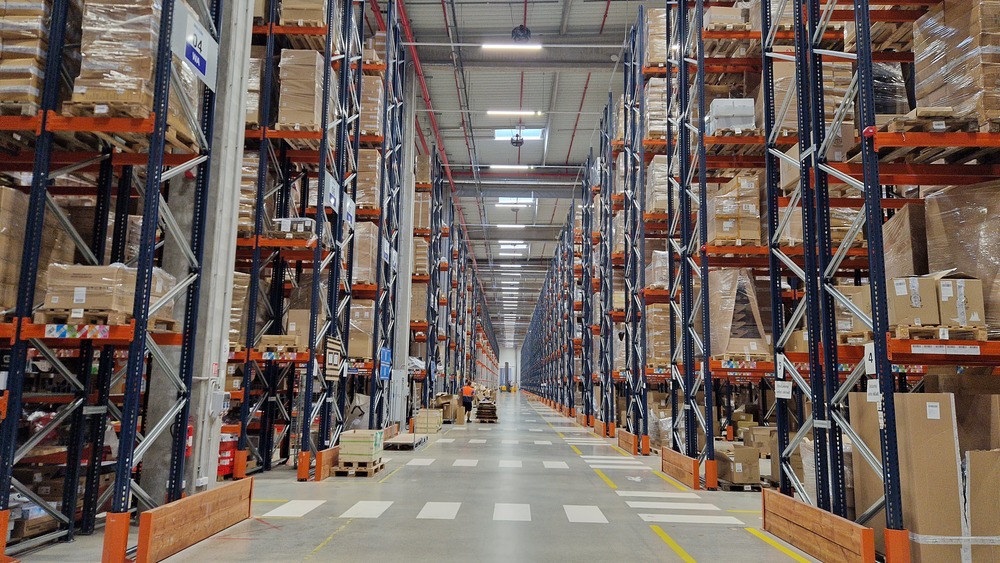Industry trends
RFID in warehousing and logistics
1. 8. 2025
3 minutes read
Efficient warehousing and logistics today is increasingly about data and speed. At a time when every minute counts, RFID technology is a tool that can fundamentally change the way companies receive, store and ship goods. With the ability to track products in real time, RFID delivers greater accuracy, time savings and better control.

Warehouses and logistics centres today are under increasing pressure for speed, accuracy and low error rates. Manual processes are not enough to meet the demands of modern operations, and this is where RFID technology comes in as an effective tool to help companies speed up and simplify everything from receiving goods to dispatching them.
Thanks to wireless chips and readers, RFID can fully automate what used to take hours of work. In this article, we'll look at the main benefits of RFID in warehousing and logistics and show why it's becoming the standard for smart inventory management.
How does RFID work in the warehouse?
The basis of RFID is to tag each item with a unique chip (tag), which can be stuck to a box, pallet, crate or the product itself. This tag contains information such as the product name, batch, expiration date or serial number. Using stationary or mobile readers, tens to hundreds of tags can be read remotely simultaneously – without the need for direct contact or visibility.
This means that a warehouseman can, for example, walk down an aisle and inventory an entire section in seconds without having to handle individual items, or even have the entire process performed by an aerial robot for full automation.
Key Benefits of RFID in Logistics
1. Lightning-fast inventory
Inventories that used to take hours or days can be done in minutes and with an accuracy of over 99 % thanks to RFID. This allows for more frequent inventory control without disrupting operations.
2. Instant overview of goods movement
With gates at the entry, exit or zones in the warehouse, you can track exactly when and where a shipment has moved. RFID thus eliminates loss, mispicking or confusion in warehouse movements.
3. Automation and time saving
From receiving to shipping, RFID can be used to automatically retrieve goods without human intervention. An example would be a gateway that registers incoming goods itself and automatically registers them into the system.
4. Lower error rate
Human error is common and often costly in logistics. RFID significantly reduces the risk of product mix-ups, incorrect quantities or out-of-date data.
5. Accurate real-time data
RFID is invaluable when working with live data – it provides instant information on what is in stock, what is being picked, what is delayed or where a specific item is located.
Where does RFID make sense in logistics?
-
Receipt of goods – automatic tag loading on shipment arrival
-
Stacking – location tracking, space usage optimization
-
Order picking (pick & pack) – accurate identification of products and quantities
-
Expedition – verification of shipment accuracy upon departure
-
Reverse Logistics – efficient processing of returns and claims
-
Tracking of packaging materials – for example, returnable crates or pallets
RFID vs. barcode: why RFID is better
While a barcode requires visual contact and manual scanning of each piece individually, RFID allows the data to be read automatically and in bulk. In addition, tags are more resistant to damage, can be read through packaging, and some types work in extreme conditions (dust, moisture, metallic environments).
All this means more efficiency, less wasted time and better data for decision making.
How can RFID help you in practice?
By implementing RFID, logistics operations gain the speed, accuracy and transparency that is essential in today's world. With Buylo's technology, you can deploy RFID into your operations without requiring major infrastructure intervention through easy API integration with your WMS/ERP/POS.
In logistics, seconds, accuracy and visibility make all the difference. RFID makes it possible to do things faster, smarter and at less cost. Companies investing in RFID today are ensuring a competitive advantage, a better customer experience and readiness for the digital future of logistics.
Back to top